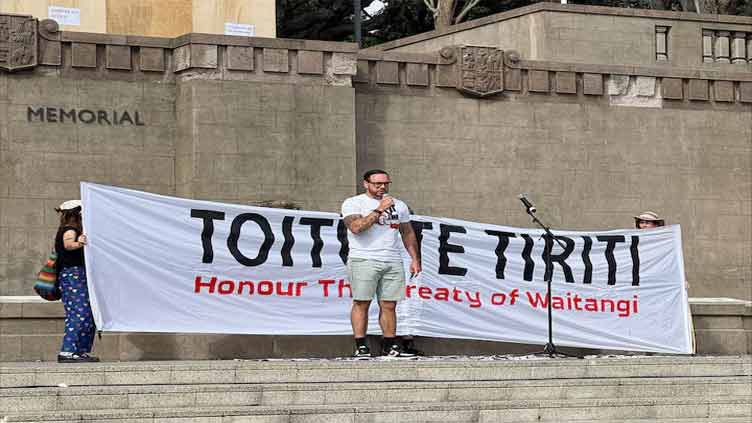New Zealanders celebrate national day amid debate over founding treaty

World
Thousands gathered in New Zealand to celebrate the signing of founding document
WELLINGTON (Reuters) - Thousands gathered across New Zealand on Thursday to celebrate the signing of the country’s founding document and some called for an end to government policies that critics say erode the rights promised to the Indigenous Maori population.
As the sun rose on the dawn service at Waitangi where the Treaty of Waitangi was first signed between the British Crown and Maori chiefs in 1840, some community leaders called on the government to honour promises made 185 years ago.
The call was repeated at peaceful rallies that drew several hundred people later in the day.
"This government is attacking tangata whenua (Indigenous people) on all fronts. Rolling back Maori representation, undermining our reo (language), our tikanga (customs), our tino rangatiratanga (self-determination),” Anaru Ryall, an activist with Tiriti Action Group Poneke, told the protest in the capital Wellington.
Relations between the government and Maori have soured in the last 18 months, and some government ministers faced protests as they tried to address crowds in Waitangi on Wednesday.
The conservative government, elected in late 2023, has unwound policies and disbanded organisations aimed at improving the lives of Maori, who make up about 20% of the 5.3 million population.
Maori have higher levels of deprivation and incarceration and worse health outcomes than the broader population.
The annual Waitangi Day celebrations, which also included free concerts, sporting events and panel debates, have long been used as a time of protest.
New Zealand Prime Minister Luxon spent the day with Ngai Tahu, a tribe or iwi, in the South Island, avoiding Waitangi where protesters heckled ministers last year. He said he wanted to celebrate with other tribes that had signed the treaty.
“Today is a time to reflect on where we have come from and look forward to where we are going together as a nation,” Luxon said in a post on X.
In late 2024, tens of thousands of New Zealanders took part in a nine-day march against the Treaty Principles Bill.
The bill, which looks unlikely to secure enough support to become law, seeks to redefine how the treaty is interpreted.
The bill has been championed by the libertarian ACT Party, which agreed to support National providing the law was introduced to parliament. It is currently being discussed by a parliamentary committee.
A record roughly 300,000 submissions were made on the bill and hours of oral submissions are currently being worked through.
At Wellington’s march, Kahu Unahi said she was there to stand up for the rights of her family, her people and for her ancestors who fought to improve the plight of Maori.
“We have to keep representing tangata whenua (Indigenous people),” the 39-year-old said.


